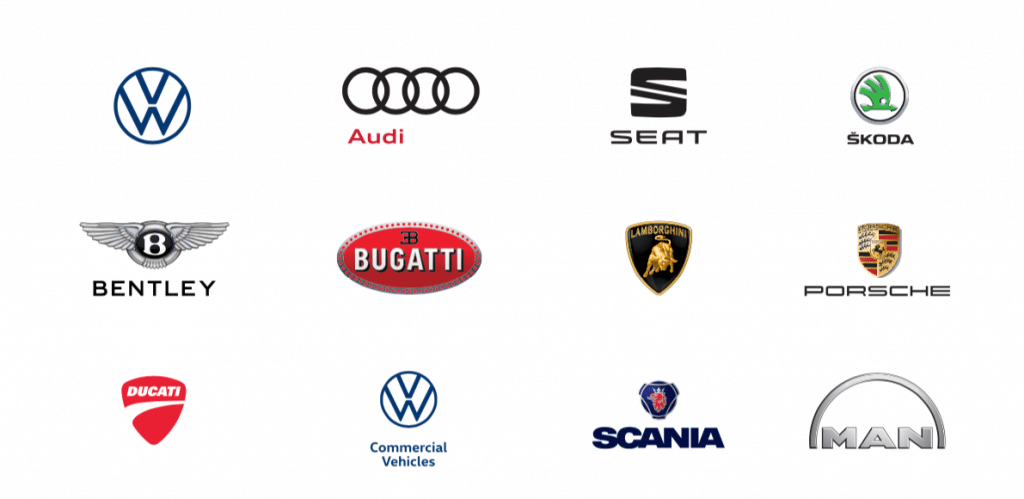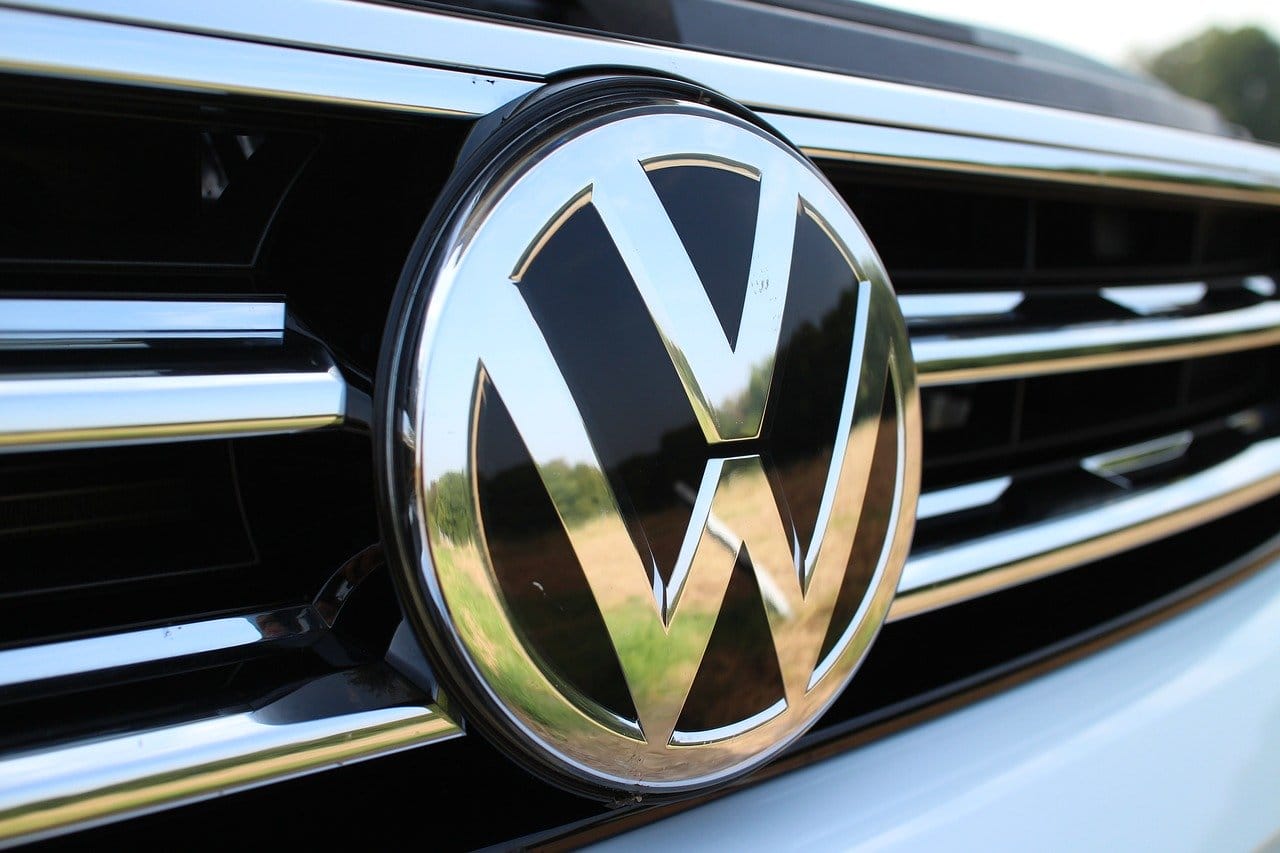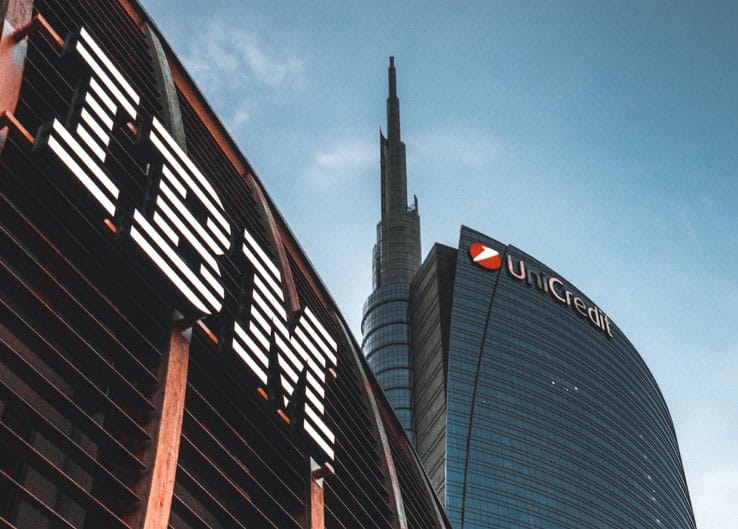Company: Volkswagen Group
Founders: German Labor Front
Year founded: May 28th, 1937
CEO: Herbert Diess
Headquarters: Wolfsburg, Germany
Employees (Dec 2019): 671,200
Type: Public
Annual Revenue (Dec 2019): Euro € 252.6 Billion
Profit | Net income (Dec 2019): Euro € 13.88 Billion
Products & Services: Passenger Vehicles | Commercial Vehicles | Motorcycles | Engines| Propulsion Components | Turbomachinery | Banking | Financing | Fleet Management | Insurance | Leasing
Competitors: Toyota | General Motors | Chevrolet | Daimler | Hyundai | Renault Nissan | Ford | Fiat Chrysler Automobiles | Zorya | Koenigsegg | Tesla
Fun Fact: Did you know that over 21.5 million original Volkswagen Beetles were sold since 1945, making one of the best-selling cars of the 20th century?

Regardless of the industry and type of business, any company that survives and thrives in the top ten for nearly a century should be awarded the respect it deserves. Volkswagen is close to hitting a century in the top tier of the auto industry.
While we can promise to build for you a century-old business, we can at least give you some tools to chart your entrepreneurial journey. With the wealth of expertise and experience, we can learn a lot from analyzing Volkswagen’s strengths, weaknesses, opportunities, and threats.
Here is the Volkswagen SWOT Analysis.
Volkswagen’s Strengths
1. Excellent Brand Recognition
As one of the oldest automakers, Volkswagen is highly recognized globally. For one, the company’s simple but iconic intertwined VW logo can be picked out of a line by most consumers across the world.
2. Strong financial Performance
With immense financial capability comes flexibility and the ability to do anything a company needs to do to beat the competition.
According to Forbes, as of May 2020, Volkswagen is ranked at the following global position:
- #8 in sales revenue
- #37 in profitability
- #70 in terms of assets
- #133 in term of market value
3. World’s Best Employer
According to Forbes, Volkswagen is ranked at # 31 position in the World’s best employers list of 2019.
4. Impressive Portfolio
From Lamborghini to Bugatti, Bentley, Audi, Skoda, and Porsche, all these icons are part of Volkswagen’s portfolio. Apart from high-end sports cars and luxury brands, the company also caters to the ordinary folks. Volkswagen has something for everyone.

5. Diversified Brands
The Volkswagen group is highly diversified with two major divisions: the Automotive division and the Financial Services Division.
Automotive Division Financial Services Division Passenger Cars Business Area Commercial Vehicle Business Area Power Engineering Business Area Volkswagen Passenger Cars MAN Commercial Vehicles Parts Dealer financing Ducati Scania Vehicles Engines Customer financing SKODA Leasing Bentley Insurance SEAT Fleet Management Porsche Mobility offerings Volkswagen Commercial Vehicles
6. Vehicle Sales
Despite a very competitive landscape, Volkswagen sold 10.9 million vehicles in 2019, resulting in annual revenue of €252.63 billion.
7. Brand Value
According to the Interbrand, the brand value of the Volkswagen group is $12.9 billion in 2019. [Source]
8. Strong Global Production Network
Volkswagen group operates a total of 124 production locations across the globe. With the majority of production locations (72) in Europe.
From Europe to America, Asia, and Africa, the company has a substantial market presence in both developed and developing economies.
Volkswagen Production Locations Regions Number of locations Europe 72 North America 6 South America 9 Asia 33 Africa 4 Total 124
9. Strategic Restructuring and rebound strategy
After plunging drastically in the aftermath of the diesel emissions scandal in 2015, the company restructured strategically and rebounded within two years.
Then CEO, Mattias Muller developed Volkswagen’s transformational strategy “Transform 2025” in the following phases:
- The first phase (2016 – 2020): Develop new competencies – electric vehicles and e-mobility
- The second phase (2020 – 2025): Become world’s leading, profitable volume manufacturer
- The third phase (2025 onwards): the rapid expansion of electric vehicles [Source]
10. Huge Investments in R&D
From industrial cloud to hybrid and electric cars, efficient combustion engines,motorcycles, and many more technologies, Volkswagen invests heavily in R&D.
This has enabled the auto manufacturer to deliver high performance and quality cars consistently and maintain a technological advantage over the competition.
11. Effective Management of Operations
While other companies struggle to manage suppliers, raw materials, sales, capacity-demand ratio, and so on, Volkswagen is producing over 30,000 cars per day. Effective management makes all this look so easy.
12. Great Partnerships
Volkswagen’s partners are highly reliable and leaders in respective fields, which has contributed to the success. In matters of technology, Volkswagen has partnered with many leading technology companies such as Microsoft, Siemens, Amazon (AWS), etc. to expand its e-mobility services.
13. Closely-knit Teams
Manufacturing plants that work and live as a close family are highly efficient. Volkswagen’s plants are designed as small towns with technicians, welders, supervisors, team leaders, designers, and support staff all living as a community.
Volkswagen’s Weaknesses
1. Emission Scandal – Tainted Reputation
In September 2015, Volkswagen’s reputation as one of the most trusted auto manufacturers was tainted with the revelation that it installed software in its cars to cheat emissions tests.
As a result of the diesel emissions scandal, Volkswagen was penalized to pay over € 30 Billion in fines in various countries and has struggled to regain the trust of consumers. [Source]
2. Lack of Diversification
While it has an impressive portfolio, the company is focused on producing cars for sale. Millennials and Gen Z are the present and future, but they prefer to rideshare, car share, and car rentals. This makes Volkswagen’s lack of diversity a major weakness. [Source]
Millennials are not as crazy about buying cars as baby boomers were.
3. Weak Marketing Strategies outside Europe
Volkswagen does not market or promote its brands aggressively enough outside Europe. In most cases, the company will collaborate with a company already in the market. For example, it is collaborating with JAC to produce low-cost electric cars in China. [Source]
Volkswagen’s Opportunities
1. Diversify Portfolio
As more and more millennials enter the marketplace, the demand for simple, cheap, and flexible mobility will increase.
With Volkswagen already manufacturing great cars, all it has to do is create an app for car share, rideshare, or car rental, and they can attract millennials in droves. [Source]
2. Focus on Eco-friendly Cars:
The number of eco-conscious consumers is increasing rapidly across the world. Volkswagen can invest more in the manufacture of hybrids and electric cars to exploit the growing demand. In the next five years, Volkswagen has set aside €60 Billion for the expansion of its electric cars. [Source]
Volkswagen group estimates that by 2025, 20% (about 2.5 million) of all its vehicles will be Battery Electric Vehicles (BEV).
In comparison, in 2019, BEV volume is about 1% of total group vehicle deliveries. For example, some of its electric vehicles are e-tron, Taycan, e-Bora, E-Lavida, etc.
3. Expand in Emerging Markets
The automobile market in the developed world is saturated with very little gains to be made. It is time to tap into the growing purchasing power of the middle-class in Asia, Africa, the Middle East, and Latin America.
4. Tap into Autonomous Market
Demand for self-driving cars is poised to increase rapidly in the next few years as technologies like 5G, AI, and IoT deliver smarter cities and transport networks.
Google, Tesla, and Uber are already ahead, but Volkswagen can catch up by increasing investment in autonomous R&D.
To continue its efforts, Volkswagen has partnered with Ford to integrate Argo AI’s self-driving capabilities [Source]
Volkswagen’s Threats
1. Ongoing Lawsuits
Volkswagen is engaged in emission lawsuits in several courts in the EU, the UK, France, and the US. With each loss costing millions, Volkswagen’s profits are threatened by impending court rulings. [Source]
2. Increasing Competition
The auto industry is highly competitive with new carmakers like Tesla, Zorya, and Koenigsegg grabbing market share from Volkswagen’s electric and high-end sports cars while fending off old rivals, such as Toyota, Ford, Hyundai, and Nissan.
Also, now there is additional competition from ridesharing companies such as Uber, Lyft, Ola, Didi, etc.

3. Stringent Environment Regulations
As the threat posed by climate increases, governments will increasingly focus on reducing their greenhouse gas emission and carbon footprint with stringent environmental regulations.
Just like a convicted criminal, Volkswagen’s emissions and operations will be scrutinized more obsessively by compliance auditors. [Source]
4. Trade Negotiations
The US is renegotiating trade with the EU. As the biggest export out of the EU, Volkswagen and other European cars are caught right in the middle of these negotiations as bargaining chips.
Losses of up to $2.5 billion annually are projected as the worst-case scenario. [Source]
5. Global Recession
With the looming recession in the aftermath of these uncertain times, Volkswagen’s car sales are threatened. The outbreak slashed sales revenue to drop 8% year over year in the first quarter of 2020.
5. Controversial Advertisement
Volkswagen was criticized for posting a racist advertisement video on its Instagram channel. Later, this ad was removed, and Volkswagen sent out an apology in a separate statement.
References
- Bekker, H. (2019, January 25). 2019 Global: Volkswagen Produced Fifth Million Tiguan. Best Car Brands
- Bartlett, J. (2020, January 28). Who Owns Which Car Brands? Consumer Reports
- Fleming, M. (2019, September 10). VW overhauls its brand for a ‘new era’ as it attempts to put emissions scandal behind it. Marketing Week
- McGee, P. (2018, January 18). What went so right with Volkswagen’s restructuring? Financial Times
- Forbes’ Ranking (2020). Volkswagen Group. Forbes
- Rauwald, E. (2019, November 19). VW Challenges Rivals with $66 Billion for Electric Cars Era. Bloomberg.
- Winton, N. (2019, July 25). Volkswagen Raises Profits As The Industry Worries About Its Future. Forbes
- Hetzner, C. (2019, February 23). Chastened VW seeks a greener supply chain. Auto News
- Gazdik, T. (2020, April 5). Volkswagen Launches Community-Driven Promise. Media Post
- Jolly, J. (2019, September 30). Volkswagen emissions scandal: mass lawsuit opens in Germany. The Guardian
- Eliot, L. (2019, August 4). The Reasons Why Millennials Aren’t As Car Crazed As Baby Boomers, And How Self-Driving Cars Fit In. Forbes
- Hanley, S. (2020, May 4). Volkswagen Pivots Away From SEAT For Low-Cost EV As Chinese Market Cools. CleanTechnica
- Hart, K. (2019, May 20). How Millennials, Gen Z Are Reshaping Car Rental. Auto Rental News
- Curran, K. (2018, December 5). Volkswagen’s Shift to Electric Vehicles Could Give It a Competitive Advantage. Real Money
- Grand View. (2018). Self-driving Cars and Trucks Market Size. Grand View Research
- Associated Press. (2019, November 14). Growing demand for SUVs ‘could negate electric car benefits. The Guardian.
- Schuetze, A. (2020, April 20). Volkswagen settles emissions class action with three-quarters of claimants. Reuters
- Maitali, R. (2019, October 29). Will Tesla and Volkswagen Go Head-to-Head in China? Market Realist.
- Andrea, S. (2018, November 8). Still a ‘lot of work to do’ for VW after diesel scandal – U.S. compliance auditor. Reuters
- McGee, P. (2019, February 21).VW boss warns US car tariffs could cost billions. Financial Times
- Nicholson, L. (2020, April 16). VW ditches outlook after COVID-19 hammers first-quarter profit. Reuters.
- Featured Image by renehesse from Pixabay
Tell us what you think? Did you find this article interesting?
Share your thoughts and experiences in the comments section below.












Add comment